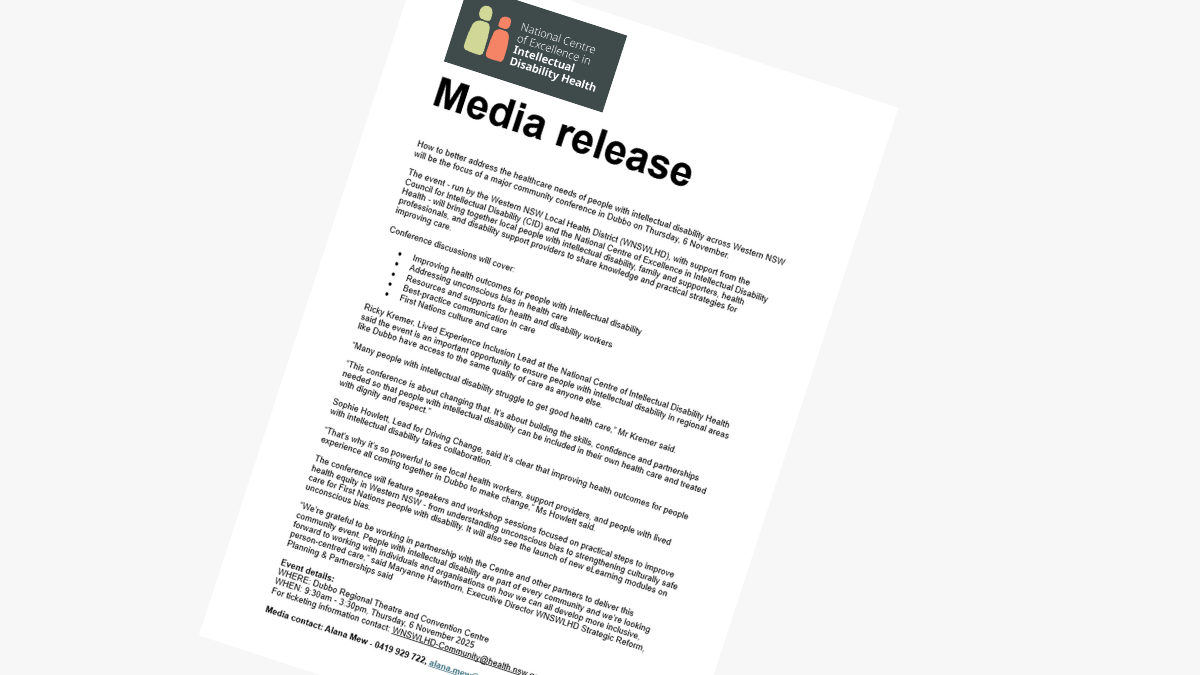Media Release
People with intellectual disability in New South Wales are facing a hidden mental health crisis, according to new research from the National Centre of Excellence in Intellectual Disability Health.
Two of the largest studies of intellectual disability and mental health ever conducted in Australia reveal people with intellectual disability experience:
- Twice the rate of psychiatric conditions compared to the general population
- Three times the rate of serious mental illness
- Seven times the rate of psychotic disorders
The findings, published in the Australian & New Zealand Journal of Psychiatry, tracked tens of thousands of people over more than a decade using one of the nation’s largest linked health datasets.
The studies also show people with intellectual disability are far more likely to turn up in emergency departments in crisis, and are three times more likely to be admitted to hospital with serious mental illness.
"This research shows a mental health system that waits for crisis rather than preventing it," Scientia Professor Julian Trollor, Director of the National Centre of Excellence in Intellectual Disability Health, says.
"We can now predict when and where people are most at risk, yet our services are failing to act until it’s too late."
Clear warning signs being missed
The research shows nearly half of all people with intellectual disability develop a mental illness, often following clear and predictable patterns:
- People with ADHD or learning disorders face 2.5 times higher risk
- Those with a previous mental illness episode are 3.7 times more likely to experience serious mental illness later
- Men, people in disadvantaged areas, and those living in rural and remote locations are all at significantly higher risk
Despite these warning signs, services remain fragmented between mental health, disability, and primary care - leaving people to fall through the cracks.
"This is a double failure - the people most at risk are the least supported, especially in rural and disadvantaged areas," said Dr Stefan Michalski, co-author of the research.
Call for urgent reform
Prof Trollor said that without urgent reform, the system will continue to fail people with intellectual disability - at enormous human and financial cost.
"We know where the risks are and when intervention is most needed," Professor Trollor said. "There is no excuse for a system that waits for preventable crises before acting. Early intervention is possible - but only if services are properly designed to deliver it."
The Centre is calling for fundamental reform to integrate mental health and disability care, ensuring prevention and early intervention are built into the system.
Michalski, S. C., et al. Predictors of mental illness onset in adolescents and adults with intellectual disability: A retrospective cohort study in New South Wales, Australia. Australian & New Zealand Journal of Psychiatry. https://doi.org/10.1177/00048674251374483
For an Easy Read version of the research click here.
Media contact: Alana Mew - 0419 929 722


